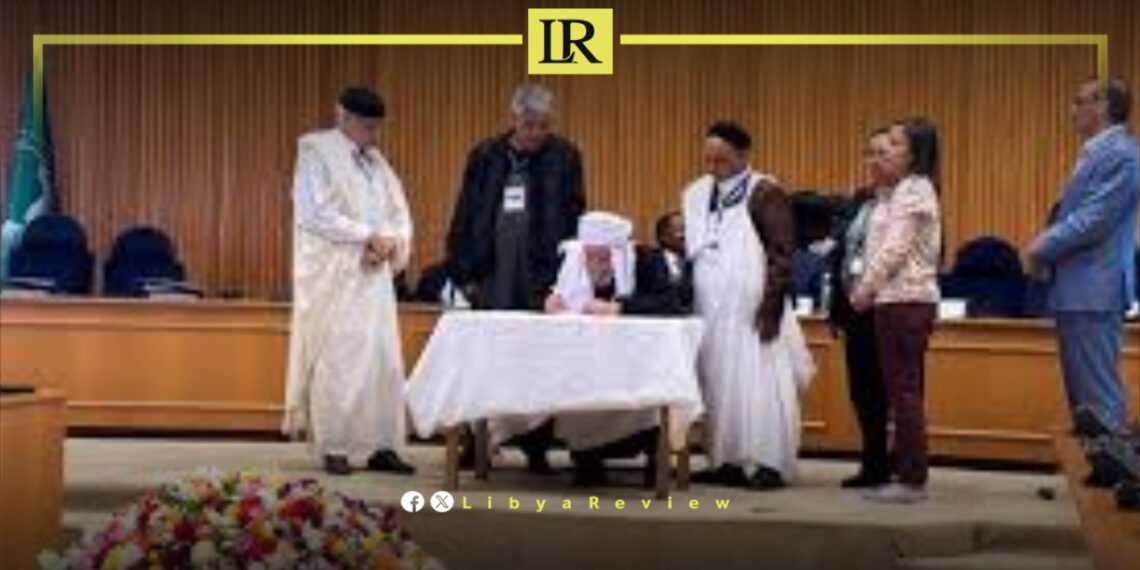In a move hailed by the African Union as historic, the Addis Ababa Peace and National Reconciliation Charter was signed in Ethiopia on Friday in the presence of Congo’s President Denis Sassou Nguesso and African Union Commission Chairperson Moussa Faki.
However, the absence of Libya’s key political and military figures has raised doubts about the agreement’s legitimacy and potential impact.
Despite the Presidential Council’s commitment to national reconciliation, neither the House of Representatives, the Libyan National Army (LNA), nor other major political entities took part in the signing.
Even Presidential Council Chairman Mohamed Al-Mnifi, who was already in Addis Ababa for the African Union summit, did not attend the ceremony.
This absence has fueled skepticism about whether the charter is a genuine step toward peace or merely another diplomatic gesture lacking real political commitment.
Since April 2021, Libya’s Presidential Council has been leading efforts to organize a national reconciliation conference with support from the African Union and the United Nations Support Mission in Libya (UNSMIL).
However, in January, the House of Representatives passed its own national reconciliation law, sidelining the Presidential Council’s proposal. This division reflects the ongoing struggle between Libya’s rival factions, each seeking to control the reconciliation process on its own terms.
Vice President of the Presidential Council, Moussa Al-Koni, criticised the absence of Libyan leadership, blaming both eastern and western factions for delaying reconciliation efforts.
He described the signing of the charter as a missed opportunity, arguing that it should have been a symbolic moment of unity witnessed by African and international leaders. Instead, the absence of Libya’s most influential figures left many questioning whether the document will carry any real weight in shaping the country’s future.
Without the support of Libya’s main governing institutions, military leaders, and political factions, the effectiveness of the Addis Ababa charter remains uncertain. While the African Union is committed to playing a larger role in Libya’s stability, the continued political deadlock, delayed elections, and rival reconciliation initiatives make it difficult to see how this agreement will translate into meaningful action on the ground.
Libya has witnessed numerous peace initiatives, ceasefire agreements, and political roadmaps, many of which failed due to internal divisions and foreign interference.
The lack of unified leadership has prevented the country from achieving lasting stability since the fall of Muammar Gaddafi in 2011. While the Addis Ababa agreement may signal renewed international interest in Libya’s future, its success ultimately depends on whether Libyan leaders are willing to prioritize national unity over political competition.
Without strong domestic political will, this charter risks becoming another document with no real impact, much like previous agreements that failed to break the cycle of conflict and division.


